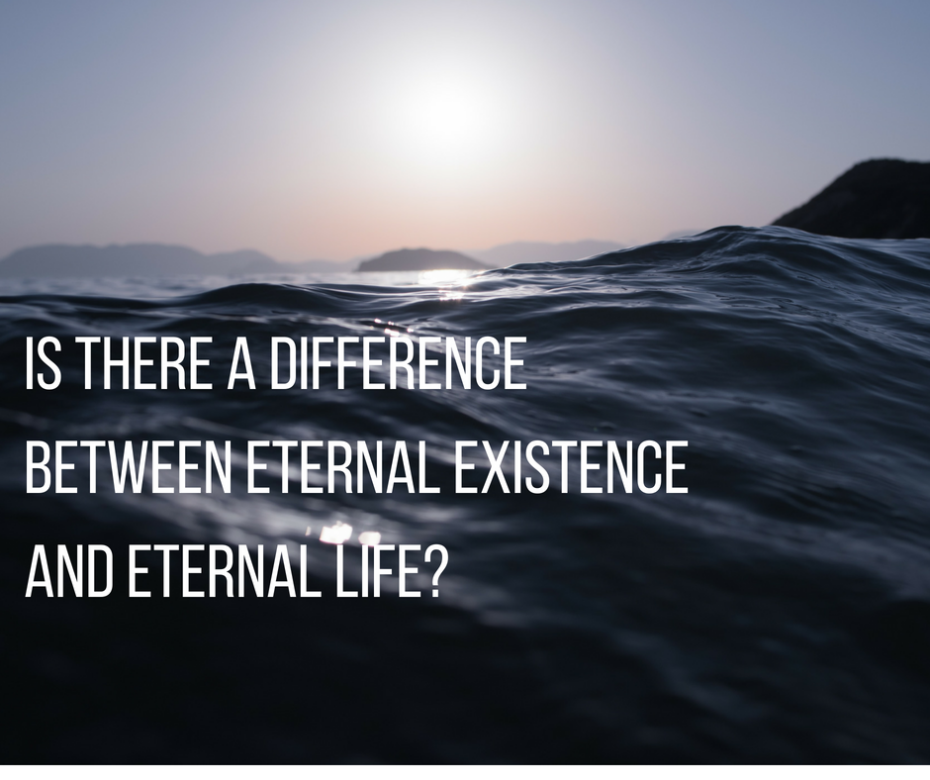In my discussions with annihilationists, one of the conceptual roadblocks I’ve encountered is an inability to distinguish between eternal existence and having eternal life.
Some annihilationists reason this way: “To have eternal life means to exist forever. Only believers have eternal life, therefore only believers will exist forever. Since unbelievers lack eternal life, they will not exist forever. Therefore, they will cease to exist, i.e., be annihilated.”
The basic mistake there is to confuse eternal existence with eternal life.
Eternal life includes the idea of unending existence, but goes beyond it. It means being born-again (John 3:6), being a partaker of God’s own nature (2 Pet 1:4), knowing God (John 17:3), and fellowshipping with Him forever on the new heavens and the new earth.
Unbelievers do not have eternal life. That is, they are not partakers of the divine nature, etc. However, whether or not they have unending existence is a different issue. I believe they will exist eternally in the Lake of Fire (for more, see here and here).
I recently came across a blog by William Lane Craig where he tried to explain this distinction to someone asking about annihilationism. I was glad to read him make the same point I have often made:
The most fundamental failing of your argument is the failure to appreciate that everlasting existence is not the same as everlasting life. The damned in hell have everlasting existence but not everlasting life. In the New Testament everlasting life is not bios (physical life, from which our word biology derives), but rather zōē (spiritual life). The damned, even if they have physical life, having been resurrected, do not have zōē. They are, in fact, spiritually dead and will remain so forever (see here).


